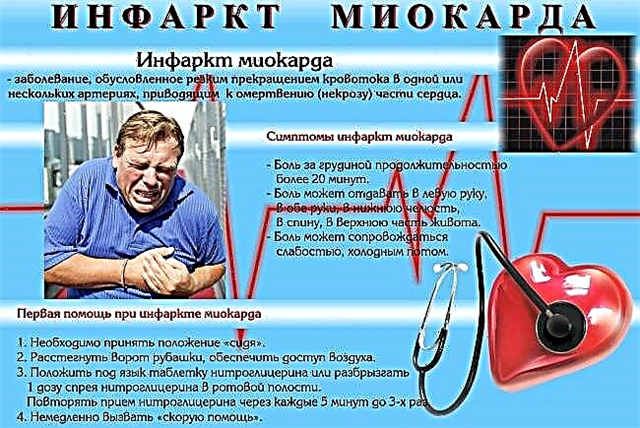Rhinitis is not a disease, but only a symptom that signals the presence of inflammation in the nasal cavity. Due to the penetration of infectious agents into the respiratory system, the nasal mucosa swells and begins to produce an excess amount of mucus. As a rule, a runny nose without fever indicates the development of allergic reactions or sluggish inflammation of the upper respiratory tract.
What drugs can cure a runny nose in an adult? Before using nasal drops, it is necessary to establish the cause of the inflammation of the nasopharyngeal mucosa. Most often, nasal congestion is due to the development of acute respiratory viral infections or colds, less often an allergic reaction. To surely get rid of the problem, during the treatment process, you need to use medications that will not only eliminate the symptoms, but also destroy the pathogen.
Treatment features
 Rhinitis is an inflammatory process in the nasal mucosa, triggered by an infection or allergy. Hypersecretion of nasal mucus is caused by irritation of the ciliated epithelium, which is covered with the inner surface of the nose. Pathological processes in the respiratory organs caused by infectious agents and allergens stimulate the activity of goblet cells, which secrete a viscous secret. It is for this reason that excess mucus begins to accumulate in the nasal passages.
Rhinitis is an inflammatory process in the nasal mucosa, triggered by an infection or allergy. Hypersecretion of nasal mucus is caused by irritation of the ciliated epithelium, which is covered with the inner surface of the nose. Pathological processes in the respiratory organs caused by infectious agents and allergens stimulate the activity of goblet cells, which secrete a viscous secret. It is for this reason that excess mucus begins to accumulate in the nasal passages.
To surely cure a severe runny nose, you need to eliminate the cause of its development. For this, antiviral, antimicrobial, antiallergic and wound-healing drugs are used. Modern medicine offers a lot of tools that help eliminate respiratory diseases and their manifestations, in particular rhinitis. These include:
- saline solutions for rinsing the nasopharynx;
- corticosteroid drugs;
- vasoconstrictor nasal drops;
- antihistamines;
- decongestants for nebulizers.
If the inflammation in the nasal cavity is not eliminated in time, this will lead to damage to the paranasal sinuses and the development of side diseases - sinusitis, sphenoiditis, ethmoiditis, etc.
Rinsing the nose
How to be treated if there is rhinitis, but there is no temperature? Regardless of the etiology of the disease, it is possible to stop a severe rhinitis with the help of washing. For irrigation of the nasal cavity, isotonic solutions based on sea salt are usually used. They relieve puffiness, destroy viruses and bacteria, and also accelerate the healing process of the nasal mucosa.
Saline solutions have a pronounced anti-inflammatory and immunostimulating effect. As practice shows, systematic irrigation of the nasopharynx with isotonic drugs allows you to stop a severe rhinitis within 2-3 days. The most effective and safest nasal rinses include:
 Humer;
Humer;- "Aqualor";
- "Marimer";
- Physiomer;
- "Quicks";
- "No-salt";
- "Doctor Theis".
To restore the normal functioning of the nasopharyngeal mucosa and reduce inflammation, the procedure must be performed at least 5-6 times a day. However, it should be borne in mind that with atrophic rhinitis, it is impossible to abuse saline solutions, since they can dry out the mucous membrane and provoke the formation of crusts on the inner surface of the nasal passages.
Vasoconstrictor drops
If a cold has become the cause of the runny nose, it will be possible to eliminate it with the help of vasoconstrictor drops. Symptomatic medicines stimulate the narrowing of the blood capillaries in the nose, thereby reducing the swelling of the mucous membrane and, accordingly, facilitating nasal breathing. Literally 3-5 minutes after the instillation of the drug, the symptoms of the common cold completely disappear.
With prolonged use of vasoconstrictor drops, side effects may develop - headaches, dryness and atrophy of the nasal mucosa.
According to most experts, vasoconstrictor drugs can be used no more than 3-5 days in a row. Over time, the body gets used to the action of the drugs, so the patient has to increase the dosage of drops in order to achieve the desired effect. Medication abuse is often the cause of rhinitis medication, which is difficult to treat.
Effective vasoconstrictor nasal drops include:
- Xylometazoline;
- Tramazolin;
- Otrivin;
- "Naphtizin";
- "Snoop";
- "Nazik";
- Galazolin;
- Fanilefrin.
It should be noted that drugs lead to an increase in blood pressure, so they cannot be used by pregnant women and people suffering from cardiovascular diseases.
Intranasal corticosteroids
Why do snot appear without temperature? The absence of temperature and signs of intoxication most often indicates an allergic origin of the common cold. Dust, gassed air, perfumes, household chemical vapors, animal hair, tobacco smoke, etc. can provoke irritation of the nasopharyngeal mucosa. It is possible to quickly eliminate inflammation in the nasal passages with the help of intranasal corticosteroids.
Intranasal corticosteroids are hormonal agents that have powerful anti-inflammatory effects. They can be used to treat rhinitis of almost any etiology. The components of the drugs interfere with the synthesis of arachidonic acid and histamine, which provokes inflammatory reactions in soft tissues.
Modern hormonal agents are practically not absorbed into the systemic circulation, therefore they very rarely cause side reactions.
You can stop the manifestations of vasomotor, allergic and infectious rhinitis with the help of the following drugs:
- Nazocort;
- "Mometasone";
- "Nazonex";
- Nazarel;
- "Aldecin".
 Despite the fact that intranasal corticosteroids are practically free of side effects, in about 8% of patients they can cause minor nosebleeds and irritation of the nasal mucosa.
Despite the fact that intranasal corticosteroids are practically free of side effects, in about 8% of patients they can cause minor nosebleeds and irritation of the nasal mucosa.
Nebulizer inhalation
Inhalation procedures are good because they contribute to the rapid absorption of the components of solutions into the nasal mucosa. For inhalation, drugs with a decongestant, immunostimulating, wound healing and disinfecting effect are usually used. During the procedure, it is advisable to use nebulizers with a nasal cannula. Thanks to a special nozzle, the liquid converted into an aerosol is quickly absorbed directly into the lesions. good site for call boys classifieds.
For nasal inhalations with infectious and allergic rhinitis are used:
- Tonsilong;
- Interferon;
- Chlorophyllipt;
- Furacilin;
- "Tincture of calendula."
To prevent side effects, drugs are diluted with saline in the proportions indicated in the instructions for use of the drug. Inhalation is desirable for 5-6 times a day until the runny nose is completely gone. The duration of one procedure is on average 10-15 minutes.
Chronic rhinitis treatment
In some cases, a runny nose without fever indicates the development of chronic inflammation in the nose.
The provocateurs of undesirable reactions in the nasopharyngeal mucosa are often pathogenic microbes. To eliminate the manifestations of chronic rhinitis, antiseptic solutions for rinsing the nose, as well as nasal drops of antimicrobial action, allow.
Sluggish inflammation in the nasal passages often leads to the development of complications - sinusitis, sphenoiditis, sinusitis, frontal sinusitis, etc.To prevent the formation of abscesses in the nasal mucosa, it is necessary to timely treat the disease with the following drugs:
- "Isofra";
- Miramistin;
- "Bioparox";
- "Polydexa".
In addition to drugs for the treatment of chronic rhinitis, physiotherapeutic procedures are used. They are aimed at restoring the integrity of the nasopharyngeal mucosa, normalizing the functions of the ciliated epithelium and increasing local immunity. The most common physiotherapy methods include laser therapy, UHF therapy, electrophoresis, and magnetotherapy.
Folk remedies
In addition to conservative treatment, folk remedies can be used to relieve severe rhinitis. Phytopreparations with anti-inflammatory action gently affect the nasal mucosa. With the systematic use of folk remedies, mucus hypersecretion can be eliminated within 5-7 days.
Traditional medicine recipes that are used to treat rhinitis:
- Kalanchoe: lubricate the nasal passages with freshly squeezed Kalanchoe juice 3-4 times a day for 5 days;
- red beets: instill 4-5 drops of freshly squeezed juice into each nasal canal at least 3-4 times a day;
- carrot juice + vegetable oil: mix freshly squeezed carrot juice with vegetable oil in equal proportions; instill 2-3 drops of the solution into each nostril 3 times a day.
Natural remedies help relieve dry nasal mucosa, irritation and nasal crusting. In addition, they contain a large amount of vitamins, therefore, they contribute to the acceleration of metabolic processes in tissues and, accordingly, an increase in immunity.

 Humer;
Humer;

